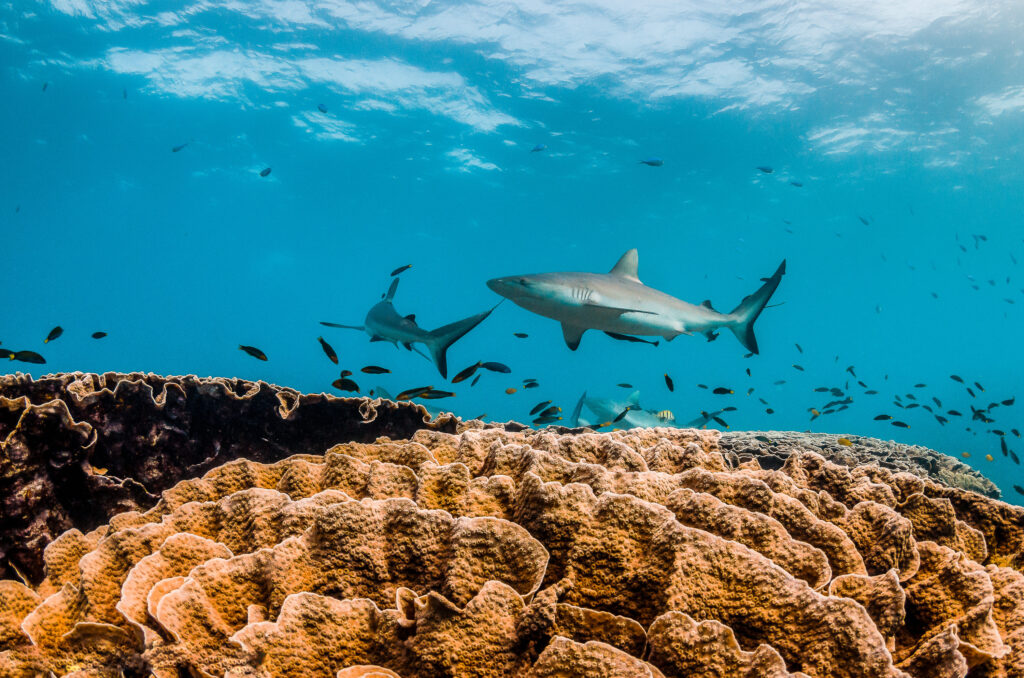
Reducing Deaths from Air Pollution
Exploreabout Reducing Deaths from Air Pollution
Decades of exploitation have devastated shark populations, leaving doubt about their long-term survival.
Sharks play an important ecological role, especially around coral reefs, where they help promote a healthy biodiversity. Reef sharks also enhance the economies of small island nations via tourism.
However, there was little factual data about the status of shark populations, especially around coral reefs. Concerns about the impact of climate change and depletion from fishing signalled a need for accurate information.
A global research project set out to assess the status of the global shark population. It involved the cooperation and collaboration of hundreds of scientists, researchers and conservationists who captured and analysed more than 15,000 hours of video from surveys of 371 reefs in 58 countries, states and territories over four years.
Translating the video footage into materials that could be shared and analysed across the project required extensive data services and analysis tools.
Australian project participants relied on the Australian Research Data Commons’ supported GlobalArchive, which is hosted on the ARDC’s Nectar Research Cloud, to manage the massive quantities of data and make them accessible to all project members.
It also allowed them to gauge Australia’s shark conservation efforts on a global scale.

The study revealed the profound impact fishing has had on reef shark populations. Sharks were almost completely absent from reefs in several nations, and none were found on 20 per cent of reefs.
The study also found that the depletion was strongly related to socio-economic conditions, including the size and proximity to the nearest market, quality of governance and population density.
“Fortunately, Australia is a country where shark populations on coral reefs are still largely intact,” Dr Tim Langlois, from UWA’s School of Biological Sciences and Oceans Institute, explained.
Australia is one of a few nations where conservation efforts, which include either banning or sharply limiting shark fishing, have been effective.
The study pointed the way for improvements.
It identified countries with high shark recovery potential, including Indonesia, Barbados and Fiji. The project team is now working in some of these and other countries to explore investments in shark fishery management and other protection measures.